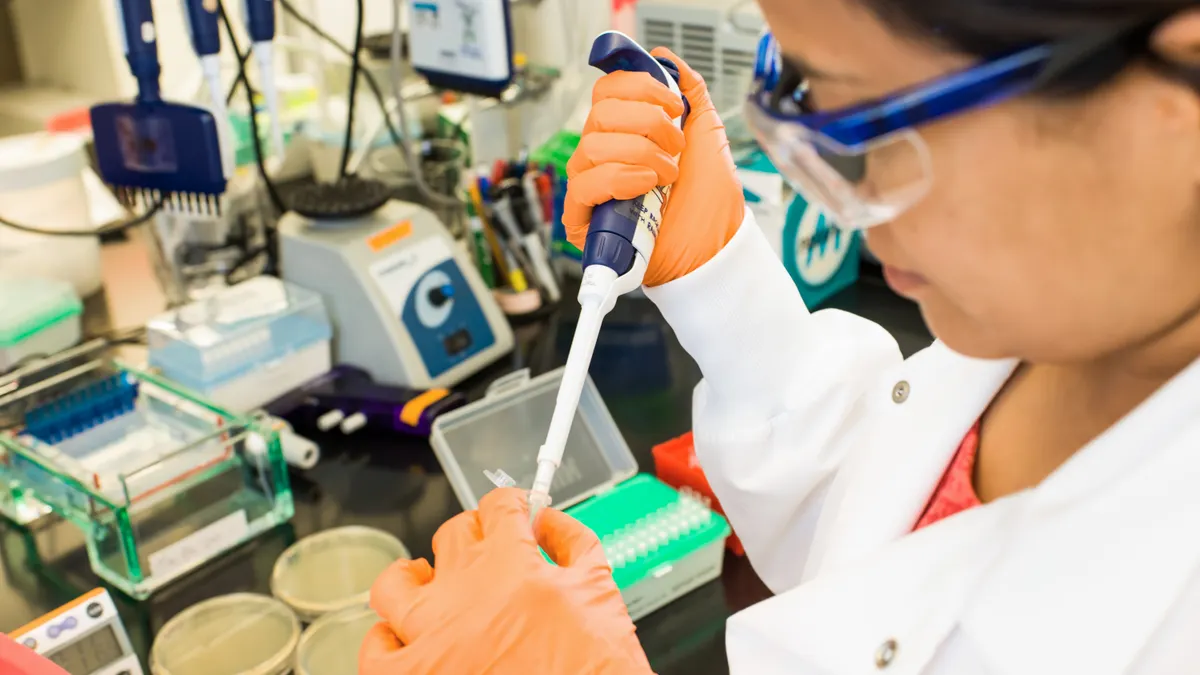Editas Medicine is pivoting once again, announcing Tuesday that it will seek a partner to advance its lead gene editing therapy, or potentially out-license rights to the treatment entirely.
The therapy, called reni-cel, is designed to treat sickle cell disease and beta thalassemia — the same two diseases targeted by Casgevy, a similar gene editing treatment from Vertex Pharmaceuticals and CRISPR Therapeutics that won U.S. clearance last year. Clinical trial results to date have indicated reni-cel can work equivalently well in treating sickle cell, but it’s likely at least several years from an approval of its own.
“We believe that the best option for both patients and our shareholders is for us to seek an alternative such as a global partner or out-licensing, which would allow for further development and ultimately commercialization of reni-cel with or by another party and would allow us to substantially reduce spend in 2025,” said Gilmore O’Neill, Editas’ CEO, in the company’s Tuesday statement.
Editas has hired the investment bank Moelis & Company to lead its search for a partner or acquirer.
A deal, if reached, would pass on the challenge of reaching market to a better-resourced firm. But it also leaves Editas hitting reset two years after the biotechnology company turned away from using CRISPR gene editing to treat diseases of the eye.
While Editas was one of the first biotechs founded to turn CRISPR technology into medicines, it’s struggled with research delays and substantial executive turnover. It has previously laid off staff, cut spending and sold off rights to some cancer cell therapy research it had been pursuing.
Now, Editas is turning its focus to “in vivo” gene editing, where a CRISPR therapy does its work modifying genes after it’s infused into the body. Reni-cel and Casgevy are both built from a patient’s own stem cells, which are collected and then edited in a laboratory.
Along with its announcement Tuesday, Editas also shared preclinical data that it described as “proof of concept” for using CRISPR gene editing in vivo to treat sickle cell and beta thalassemia. Working with mice engrafted with human stem cells, company researchers were able to shuttle CRISPR tools into the cells, where they edited a specific part of the genome that helps to govern production of a fetal form of the blood protein hemoglobin.
Turning fetal hemoglobin back on is known to help protect people with sickle cell and beta thalassemia from disease symptoms. Reni-cel and Casgevy, while working in different ways, are also designed to boost fetal hemoglobin production.
An in vivo medicine would hold advantages over reni-cel and Casgevy, most notably removing the need for preparatory chemotherapy treatment that comes with safety risks. Treatment might also be more accessible, as a patient’s stem cells wouldn’t need to be shipped back to central manufacturing laboratories.
But it’s a more distant dream and, like the research journeys of reni-cel and Casgevy, likely to bring new research challenges. Editas is also considering how else it might use its drug delivery technology to bring in vivo gene editing to harder-to-reach tissues outside of the liver.
In the short term, stepping back from reni-cel development will improve Editas’ financial outlook by reducing anticipated spending. The company recently struck a deal with Vertex that brought it some needed money, and then traded future payments promised under that alliance for upfront cash in a separate agreement with DRI Healthcare Trust.
Adding in the funds from the DRI deal, Editas estimates it will end the third quarter with about $320 million in cash, cash equivalents and marketable securities.
“Whether a partnership comes to fruition — and under what financial terms — is a point of interest, but in short, [Editas]’s intention for capital-efficient development should be a step in a positive direction,” wrote Dae Gon Ha, an analyst at Stifel, in an investor note.
Shares in Editas fell by about 8% Tuesday morning after rising Monday afternoon. The company on Monday announced a research collaboration with Genevant Sciences.














